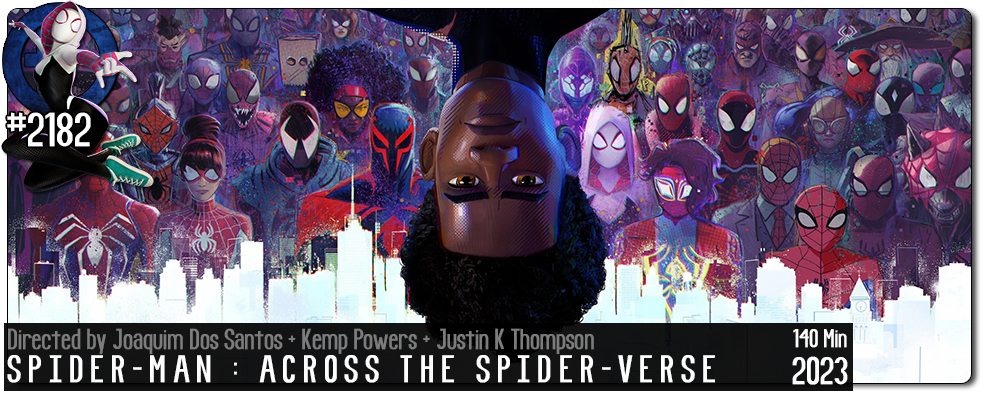Every so often, a film comes along that doesn’t just shift the paradigm of possibilities, but shatters it utterly. In 2018, Sony Animation’s Spider-Man: Into the Spider-verse did just that, with its cross-dimensional open-world storytelling and deliriously exiting animation style that showcased a breath-of-fresh-air alternative to homogeneous Disney, Pixar and Dreamworks designs. It starred a new Spider-Man in Miles Morales (although the more familiar Peter Parker did form part of the plot, despite not being as central to the emotional center of the movie) and introduced mainstream audiences to off-the-age comic book favourites like Spider-Gwen (Gwen Stacy, voiced by Hailee Steinfeld), and a variety of Spider-alternatives, as a multi-villain origin story played out in a way that obliterated audience’s expectations. The film went on to snag the Best Animated Feature Oscar that year, the first non-Disney film to do so since 2011’s Rango, and reset the bar oh, so high for further superhero comic films.
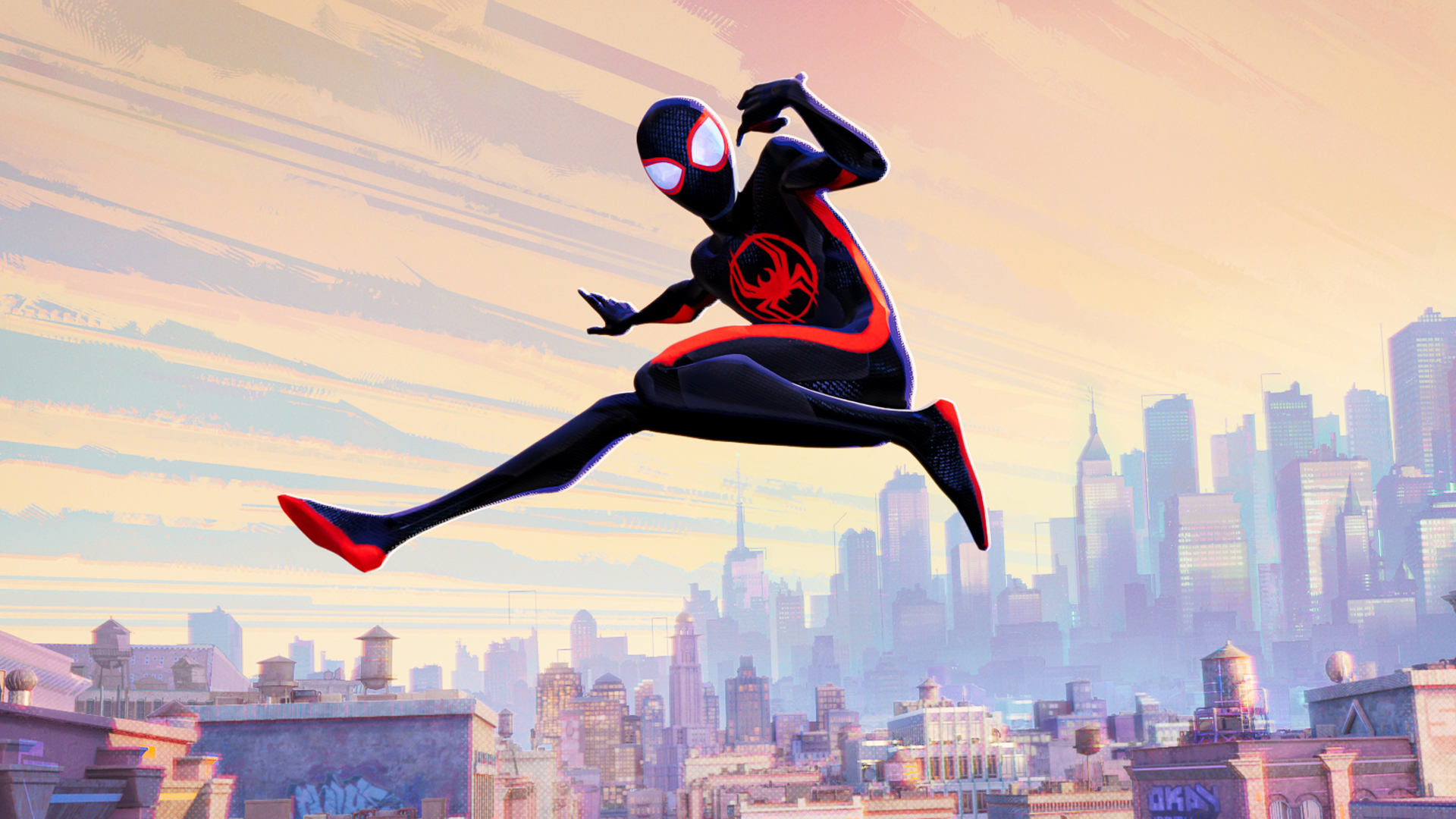
A sequel to one of animation’s crowning achievements – Into the Spider-verse is an unadulterated masterpiece in every respect, and universally pointed at as how to do a comic book movie correctly – Sony’s Across The Spider-verse had a tough ask to recapture anywhere near the same verve and kinetic energy of its predecessor. Although the first film set up the promise of further pan-dimensional adventures of Miles and Gwen, exactly how it would be pulled off was matter of some fan conjecture. Would a sequel stand up alongside the uniqueness of the original? Could it? In short; yes. In every way, Across The Spider-verse is a masterpiece of filmmaking, from the overall plot, the character development, and the animation. If anything, it takes the elements that made Into The Spiderverse so astounding and expands and improves on them, if that’s even possible.
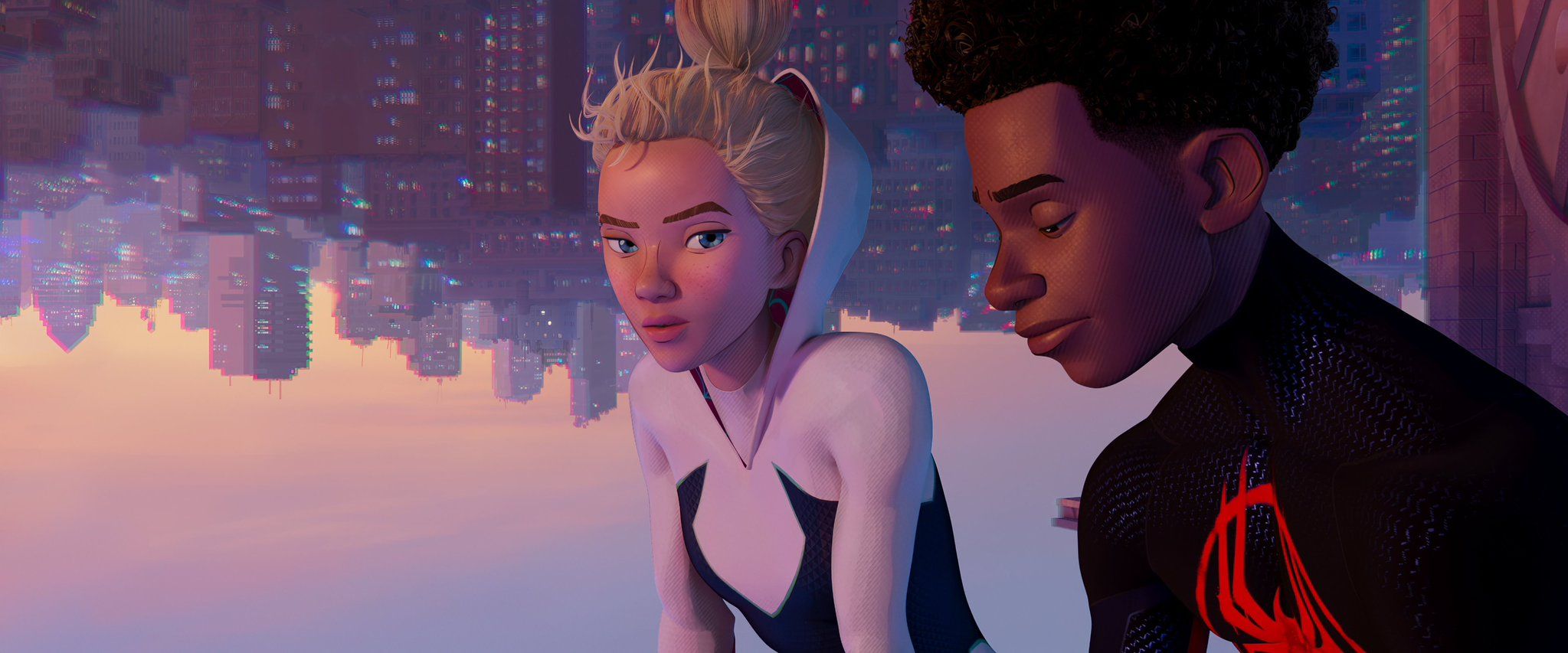
Crucial to the success of the film is its continuation of the story of Miles Morales, again voiced by Shameik Moore, and his relationship with father Jeff (Brian Tyree Henry) and mother Rio (Luna Lauren Velez), and the film once more services their individual arcs beautifully just as well as their combined journey through the story. In what I found to be the film’s most surprising and pleasing twist from the first film, Across also centers itself on Steinfeld’s Gwen Stacey, and her fractured relationship with her own father, New York Police Captain George Stacy (Shea Wigham). While it’s atypical for a film to have two main leads that demand equal screen time as this, Across absolutely pulls off a delicate balancing act, giving us well-rounded arcs, brilliant vocal performances, and heartbreaking plot twists as both Miles and Gwen struggle with, and juggle the responsibility of being, not just a teenager but also a super-hero. I smile knowing the great Stan Lee would have approved.
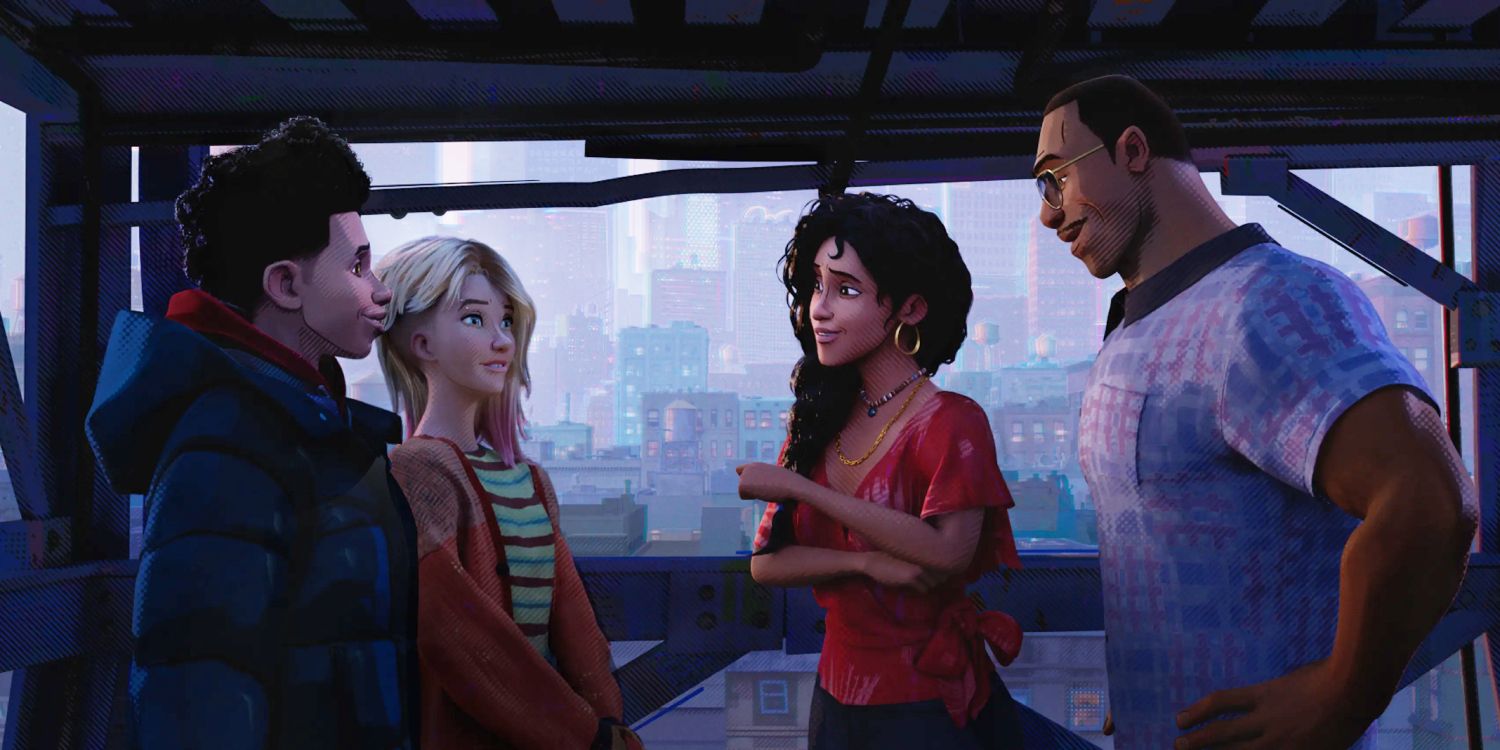
Where the film hits huge is in its visual styles. I say styles plural only because Across The Spider-verse is unlike any film you’ve ever seen when it comes to showcasing a variety of animation styles in service of a story – abstract, traditional, postmodern, vidi pastels and ragged sketchbook, to 90’s noir and Japanese manga-esque infusions all vie for space in what becomes a blitzkrieg of eye-popping artistry that boggles the mind. If you thought the original Spider-verse film had a dazzling display of animated achievement, then brother, you ain’t seen nothing yet. There isn’t an inch of the film’s frame that isn’t an orgy of stunning visual design and execution, quite literally a comic book brought to life in both 2D and 3D animation that blends so seamlessly you almost forget you’re watching something created largely inside a computer. Across has numerous visual cues and surprises from all across the Spider-Man comic book legacy, as well as from other films and television shows to bear the name, and spotting all those easter eggs can be exhausting just through the sheer volume of information thrown at the audience. This isn’t a film you can look away from, because the second you do you’re absolutely missing something you ought to be paying attention to.
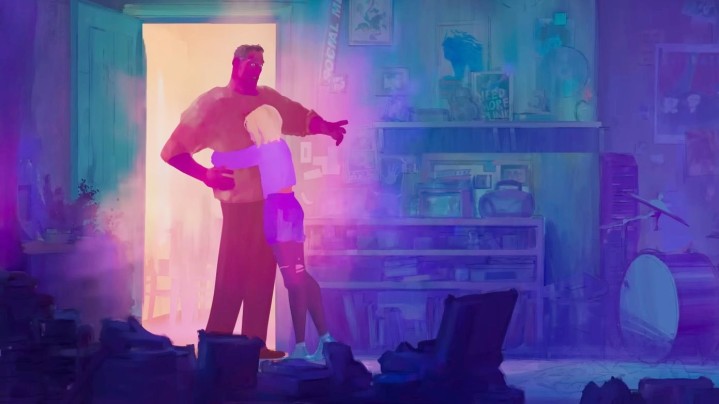
It should also be pointed out that Across The Spider-verse is something of a rarity in the tsunami of IP storytelling in Hollywood these days; the film is a legitimate Part 1 of a two-part narrative, meaning it ends on a genuinely shocking cliffhanger. One might argue the MCU’s ongoing narratives make it seem like each film is a new installment, but very few films end with a definitive “to be continued” and not offer a resolution to the film’s ongoing plot. The last time I can remember a film doing this was Avengers: Infinity War, and prior to that… well, I don’t actually remember. So if you’re expecting Across The Spider-verse to wrap up neatly and maybe tease another sequel, your expectations are incorrect. This film doesn’t tease, is outright declares it. Beyond The Spider-verse is, at the time of writing, set to conclude this trilogy in 2024, but rumours continue to circulate that the film won’t be ready until 2025 or ’26 at the earliest, given the complexity of what it takes to get these things onto the screen.
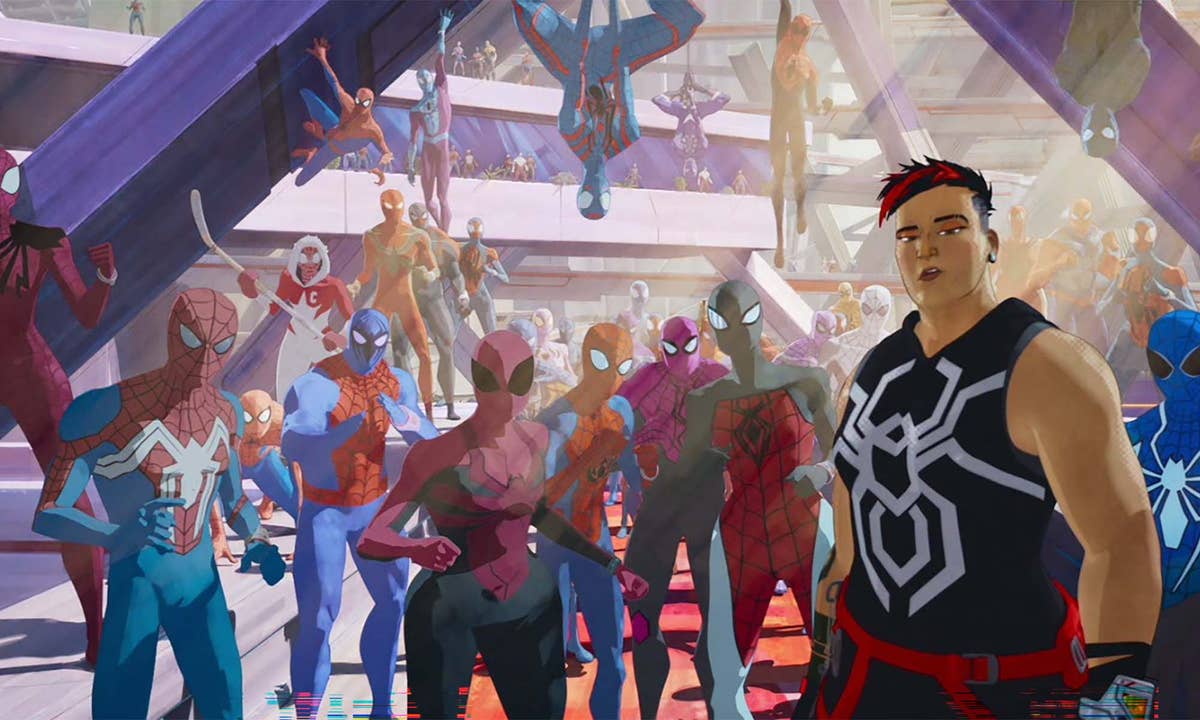
When it’s not overwhelming with brain-melting animation, editing and sheer force of will to entertain, Across The Spider-verse is a dynamic, hugely entertaining, astonishing work of art that has to be seen to be believed. With an enormous re-watch factor inbuilt thanks to eye-watering details that vanish as fast as they arrive on the screen, and a voice cast that delivers perfect performances across the board – Jake Johnson reprises his turn as an older Peter Parker, while newcomers to the franchise include Jason Schwartzman as the comedic villain The Spot (provoking one of the film’s funniest street battles), Daniel Kaluuya as Spider-Punk (capitalism!) and Oscar Isaac as a future-Earth Spider-man who lacks an entire sense of humour, all have substantive roles to play in this story. For a film jam packed with so many new and returning characters, it’s remarkable the film never feels cluttered or stuffed, and this comes down to the writing. Hollywood superstars Chris Miller and Phil Lord, together with Mortal Kombat and Shang-Chi screenwriter David Callaham have crafted a brisk, emotionally resonant and yet completely comic-book specific story of teenage angst against the backdrop of multiversal armageddon – no mean feat in itself – that works with sublime ease, the kind of complex yet simple method that must have been an absolute pain to pull off, what with all the permutations at play. That we got a film as good as, if not better than, Into the Spiderverse is a minor miracle.
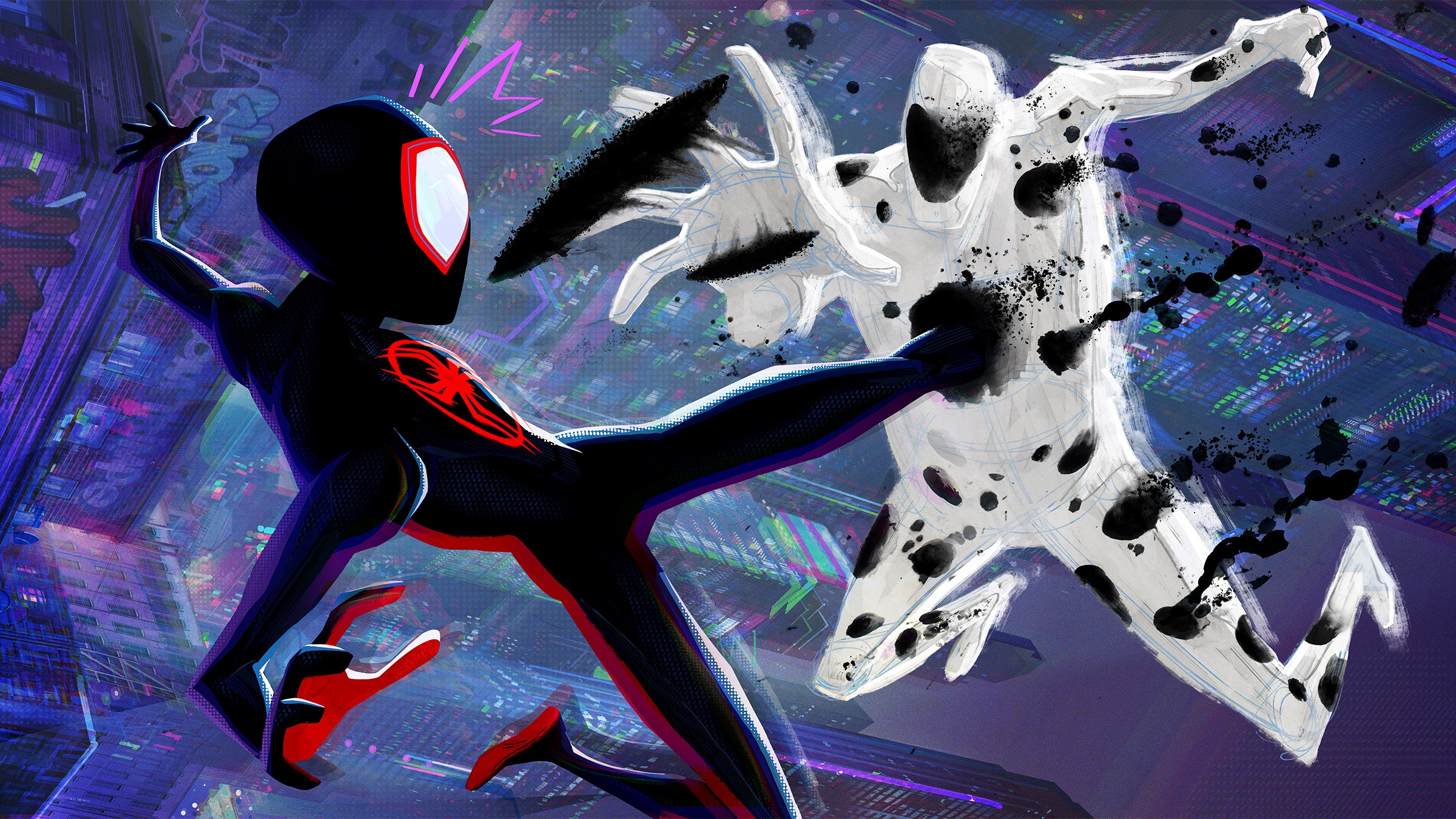
Across The Spider-verse is easily the best animated Spider-Man film to date, and mounts a case for the best Spider-Man film in any form. It bests the original Spider-verse film with ease and sets up what is an absolutely mouth-watering conclusion to come in a few years. We’re on the cusp of having one of the all-time great film trilogies of any genre if the third film can deliver on this setup. I have faith, but the wait is going to be excruciating. Across The Spider-verse is a masterclass of storytelling, design and execution, and every single person who worked on this movie should be exceptionally proud of what they accomplished. Essential viewing.







